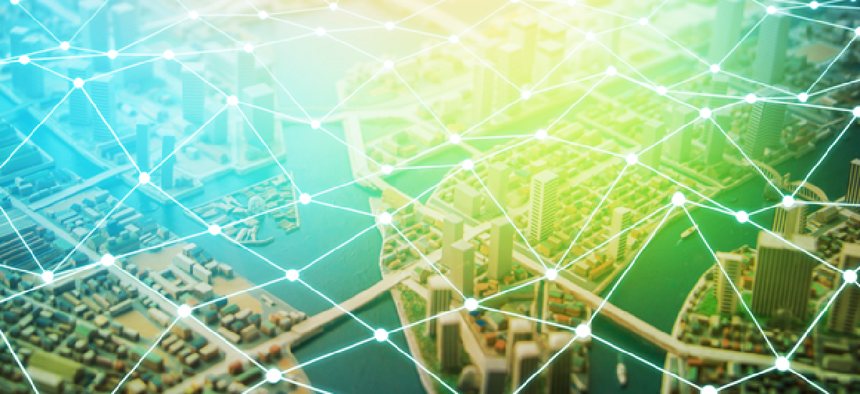Using tech to combat the coronavirus

Steve Kelman reports on early efforts to leverage technology for better contact tracing.

Recently there has been attention to the importance of what is called “contact tracing” for fighting the coronavirus. This refers to gathering information about those with whom newly infected people have been in touch, in order to notify them that they might have been infected. This has come up in the discussions of “reopening the country” after recent lockdowns, with the argument that slowing disease spread depends heavily on being able to do this, though it did not appear in the president’s re-opening plan.
But contact tracing has historically been a resource-intensive and very imperfect process. Officials have had to go to newly infected people and interview them about whom they have been in contact with over the previous two weeks. Memories of course are often imperfect. People may not even know everyone with whom they interacted. And the interviewing itself takes significant time and manpower.
In just-published guidance of contact tracing, the Centers for Disease Control has stated that “contact tracing in the U.S. will require that states, tribes, localities and territorial establish large cadres of contact tracers.” Reaching people to interview about contacts can be slow, and contacting those contacts delays things further. Meanwhile, there is a limited window between infection and illness to catch contacts with problems, so speed is important.
However, since the Ebola outbreak in 2014, mobile telephone technology and especially smartphone penetration have dramatically improved. We are now seeing, mostly in Asia, the use of tech to provide quicker, more accurate, and more economical contact tracing in response to the coronavirus pandemic. I blogged a number of years ago on the theme of areas where Asia was overtaking the U.S. in tech apps, which I illustrated with the widespread use in China of mobile payment apps using smartphones and QR codes. We are now seeing Asian superiority with digital coronavirus apps in Asia as well.
This was the theme of a recent piece in the Daily Alert, a publication of the Harvard Business Review that publishes short management-related articles, called How digital contact tracing slowed covid-19 in East Asia, by MIT Sloan School professor Yasheng Huang and grad students Meicen Sun and Yuze Sui.
I think the most-interesting example of this is a recently developed Singapore app called TraceTogether. For those choosing the use the app, Bluetooth tracks smartphones that have also installed the app. The app then tracks when a user is in close proximity with these other persons, including timestamps. If an individual using the app becomes positive to Covid-19 they can choose to allow the Singapore Ministry of Health to access the tracking data -- which can then be used to identify and then contact any recent close contacts based on the proximity and duration of an encounter. This is tech-enabled quick and accurate contact tracing. Apple and Google recently announced ago that they are developing a similar Bluetooth-based app, but rolling it out is apparently still a few months away.
Other Asian countries have used tech in other ways to help fight the virus. Taiwan has created a “digital fence,” whereby anyone required to undergo home quarantine has their location monitored via cellular signals from their phones. Venturing too far from home triggers an alert system, and calls and messages are sent to ascertain the person’s whereabouts. South Korea has an app called Corona100, which alerts users of the presence of any diagnosed Covid-19 patient within a 100-meter radius, along with the patient’s diagnosis date, nationality, age, gender, and prior locations. (A map version of the app called Corona Map similarly plots locations of diagnosed patients to help those who want to avoid these areas.)
It is impossible to mention systems such as these without some raising concerns about privacy. The Singapore SmartTracker will save data for only 21 days, and the names of the ill and their contacts will not be shared with others. Wired ran an article on privacy risks of the Google/Apple system and concluded purported risks were quite small.
A bigger question is whether the government should be allowed under any circumstances to require people to sign onto a new contact-tracing app. Observers worry that without very widespread adoption, the benefits of such apps will dramatically decline. One can make an argument, which underlines the general case for disease quarantines, that if people do not quarantine themselves and then become sick, the costs fall not just on themselves but on others they might infect. However, even Singapore, a country without the robust culture of privacy we have in the U.S., has not been willing to require people to install SmartTracker, and only about 20% have done so.
In other words, these efforts are still in the earliest stages -- but we should be tracking how combating coronavirus has entered the digital age.





